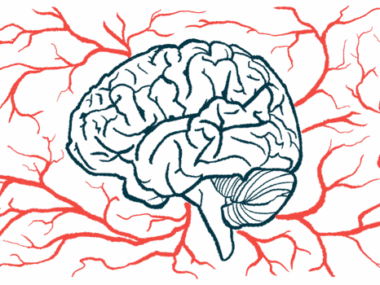#AANAM – Experimental Gene Therapy AVXS-201 Shows Promise to Treat Rett Syndrome in Preclinical Studies
Written by |

Preclinical data from mouse studies support initiating first-in-human clinical trials to explore the safety and effectiveness of the investigational gene therapy AVXS-201 in patients with Rett syndrome.
Recent results have shown that one-time treatment with AVXS-201 is safe and well-tolerated in mice and non-human primates and supports the production of functional MeCP2 (the enzyme that is lacking in Rett syndrome), extending the overall survival of mice in models of the disease.
The therapy is expected to enter clinical trials this year.
The results of the study, “Rett syndrome gene therapy improves survival and ameliorates behavioral phenotypes in MeCP2 null,” were presented by Kevin D. Foust during the 2019 Annual Meeting of the American Academy of Neurology (AAN) in Philadelphia.
Rett syndrome is a genetic disorder that is caused by mutations in the MECP2 gene. Because the encoded protein has an important role regulating the levels of other proteins, particularly in nerve cells, its impairment has significant effects on brain development and function.
Given the genetic nature of Rett syndrome, researchers have been focused on developing strategies to overcome the loss of functional MeCP2 protein as a way to treat this patient population.
With this in mind, AveXis (purchased by Novartis in 2018) developed the experimental gene replacement therapy AVXS-201. It uses a safe and inactive adeno-associated viral vector (AAV9) to specifically transport and deliver a healthy version of the MECP2 gene to nerve cells.
AveXis, in collaboration with researchers at the Research Institute at Nationwide Children’s Hospital, tested the therapeutic activity and safety of AVXS-201 in preclinical models of Rett syndrome.
They used mice that had been genetically manipulated to lack the MeCP2 protein — mimicking the features of the human disease — and injected them (directly into the brain) with multiple doses of the experimental gene therapy.
Next, they assessed the overall impact of the therapy on the survival and behavior of mice.
Researchers found that treated mice had extended lifespans compared to animals treated with a placebo, especially those that received a higher dose of the therapy. In general, the mice survival rate was improved by approximately 300%. Treatment with multiple doses of AVXS-201 also significantly rescued mice behavioral symptoms, again, with the higher dose achieving better results
Next, researchers tested AVXS-201 administration in non-human primates (macaques) by injection into the spinal canal (lumbar intrathecal injection).
The gene therapy induced a stable production of the MeCP2 protein throughout the whole central nervous system after a single injection without triggering significant adverse effects in the following 18 months.
Collectively, these preclinical results demonstrate that AVXS-201 can restore MECP2 gene levels, supporting further studies as a potential treatment for Rett syndrome.
AveXis also is developing a similar gene therapy for possibly treating spinal muscular atrophy (SMA), a genetic neurodegenerative disease characterized by progressive muscle weakness.
The investigational therapy Zolgensma (AVXS-101) has shown to effectively improve motor function and prolong survival of infants with SMA type 1, the disease’s most severe form.
Supported by positive clinical trial data, the company has requested approval of Zolgensma from the U.S. Food and Drug Administration, which is currently performing a priority review. A final decision is expected soon.





